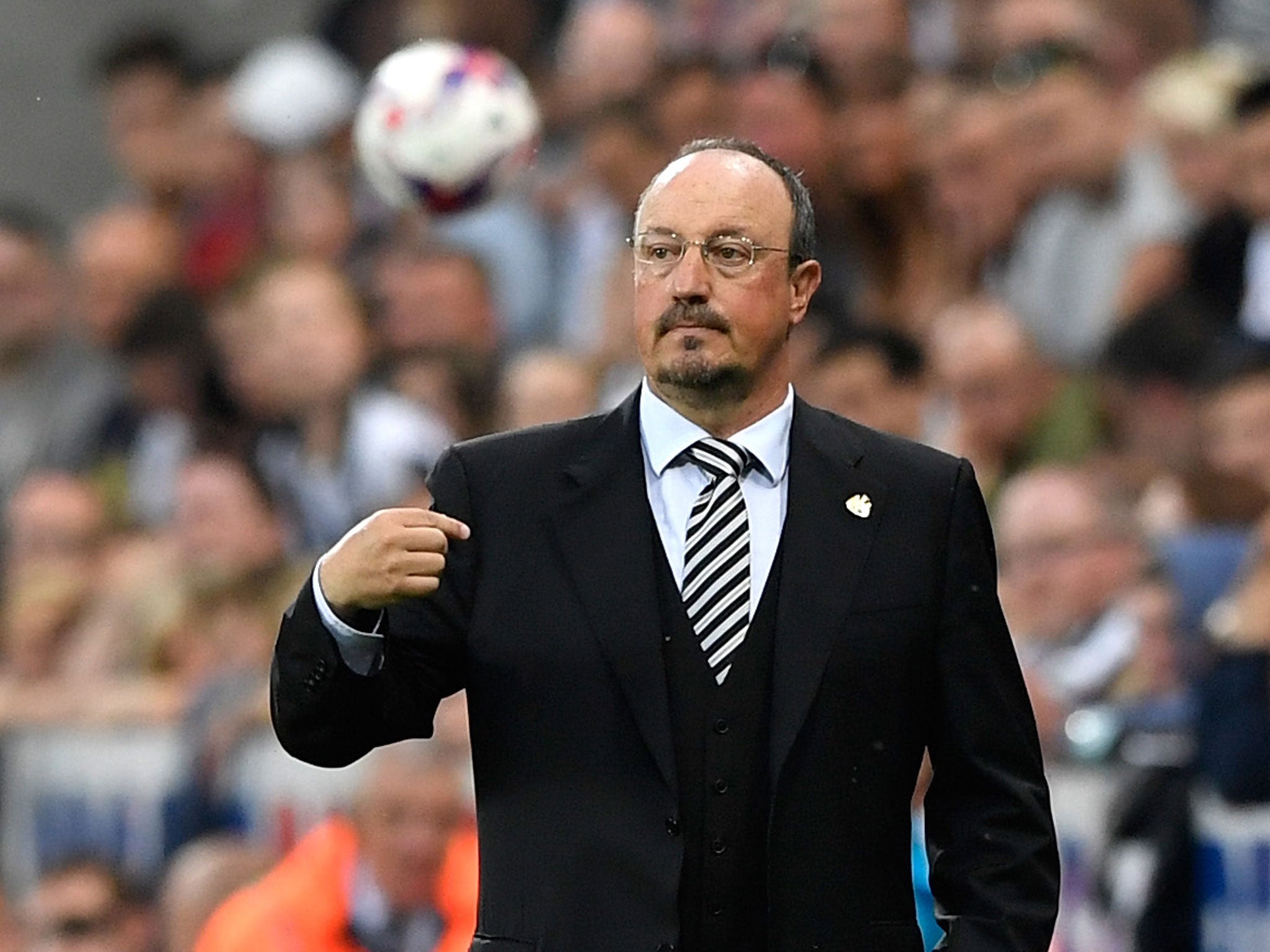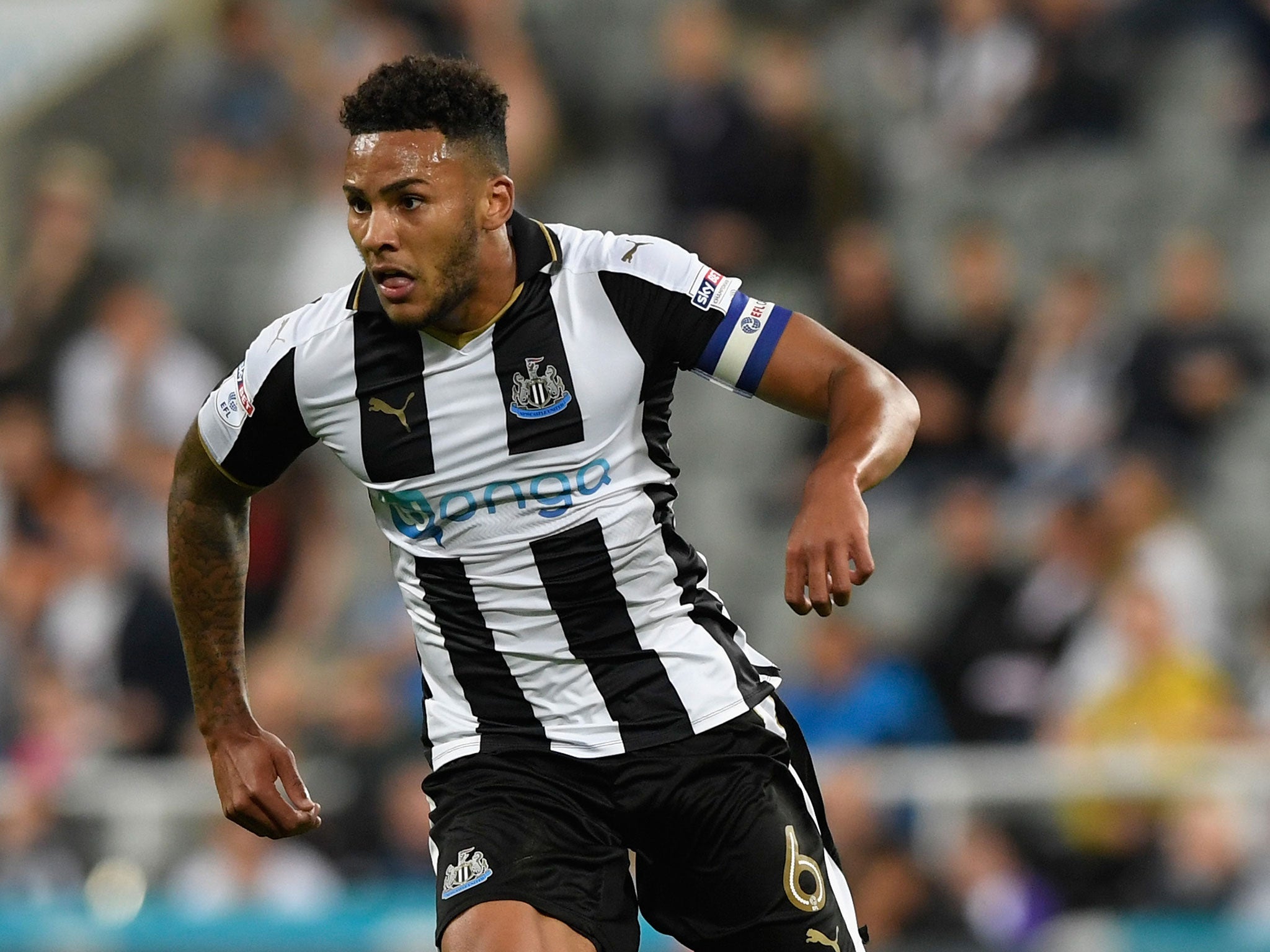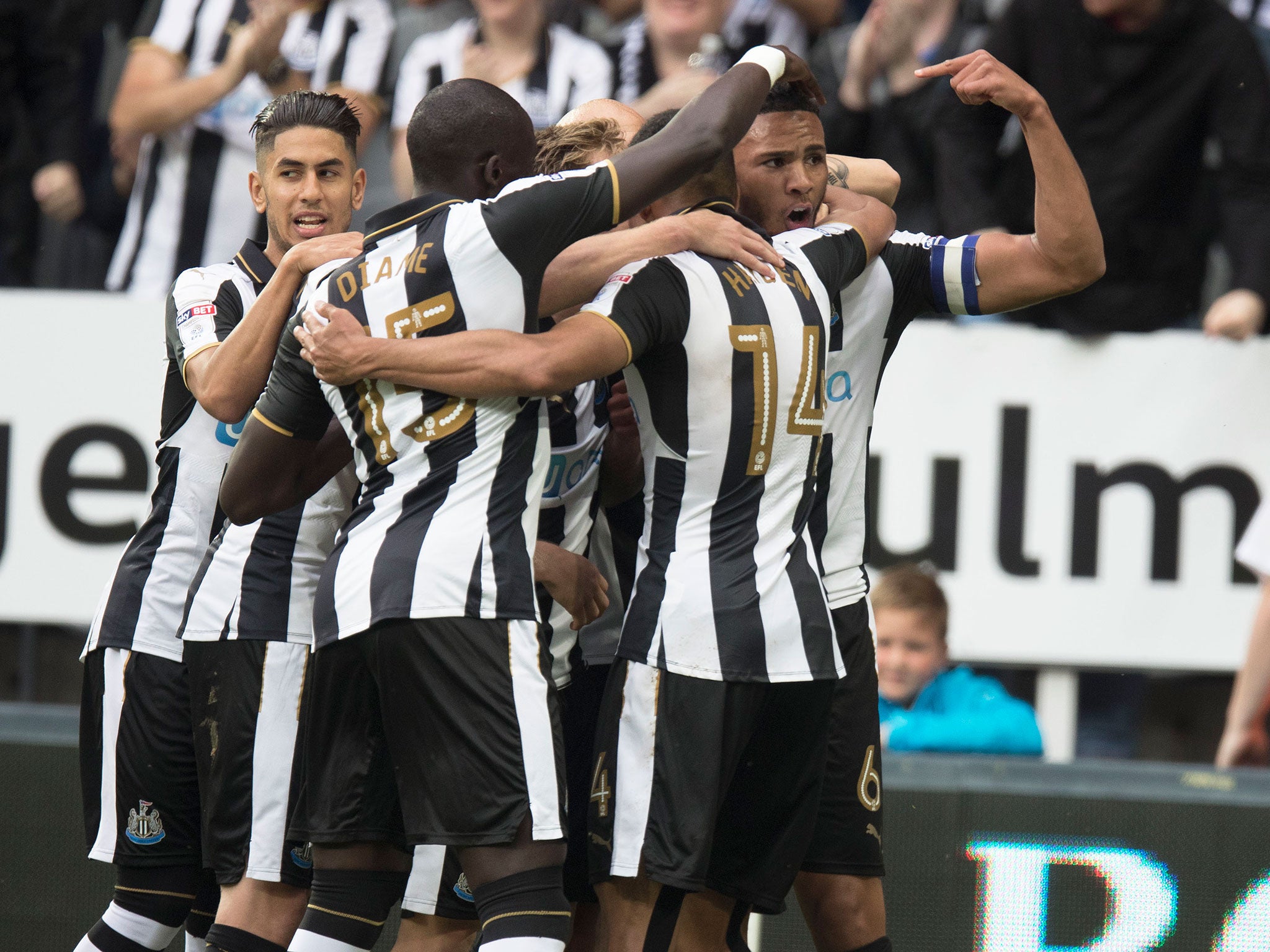How Rafa Benitez reconnected Newcastle United with its city to take them top of the Championship table
By showing steel in the boardroom and through acts of substance, the Spaniard has overcome the disappointment of relegation and brightened the mood of an entire city

Your support helps us to tell the story
From reproductive rights to climate change to Big Tech, The Independent is on the ground when the story is developing. Whether it's investigating the financials of Elon Musk's pro-Trump PAC or producing our latest documentary, 'The A Word', which shines a light on the American women fighting for reproductive rights, we know how important it is to parse out the facts from the messaging.
At such a critical moment in US history, we need reporters on the ground. Your donation allows us to keep sending journalists to speak to both sides of the story.
The Independent is trusted by Americans across the entire political spectrum. And unlike many other quality news outlets, we choose not to lock Americans out of our reporting and analysis with paywalls. We believe quality journalism should be available to everyone, paid for by those who can afford it.
Your support makes all the difference.They call them the cages, and they were full. Nine 3G pitches. Black and white wherever you looked. It was a Friday night.
The thud of ball, of people shouting, clouds of breath and sweat lifting into the darkening sky of a Tyneside night in October. Floodlights, arguments, celebrations; football being played.
And then a blue double door at the end of a corridor very delicately opened. One man in a tracksuit. The other in his civvies.
Very suddenly a growing noise throughout the pitches at Soccerworld. Shouting, banging, the realisation that less than 24 hours before Newcastle United faced Brentford at St James’ Park, the club’s captain and manager had turned up to watch.
A frenzy and a roar; two miles from St James’, up Westgate Road, into the heart of a different Newcastle, the cultural mix of the city, United, at quarter past seven on a Friday, by football and by the city’s club.
Rafa Benitez tucked his hands into his back overcoat, walked out and smiled. Beside him, Jamaal Lascelles looked more pensive. There was a lot to take in. Just over a year earlier Lascelles had made his Premier League debut for Newcastle as a substitute. They lost 6-1 at Manchester City.
He had been 21 then. Three games later, in another dispirited dressing room, this time at Selhurst Park, he railed against the inertia. The young substitute that day asked a sullen dressing room why no one was bothered anymore. Lascelles did not get a response.

He was 22 when he called out Daryl Janmatt for going off at half-time during a horrendous capitulation at Southampton, later in the season, during a 3-1 defeat at St Mary’s.
There was much not right at Newcastle United then, not least a dressing room that had grown hardened and cynical to the needs of the club and the city, poisonous even, with players who had not fulfilled their desire to move on, stuck on the stepping stone, left forlornly like an unclaimed suitcase on an airport carousel.
The unhappiness had grown, a malaise left untreated.
Back in October 2013, the noise had been of a lone drummer, beating a sad rhythm to a procession of disaffected supporters who walked through the streets, from the Civic Centre, up Barrack Road, past the Milburn Stand up to Leazes Park.
There was the odd, symbolic wave of a white hanky from those they passed. Around 400 fans, fed up with the owner and the manager and the drip, drip of ambition and hope, dragged their feet as the drummer played.
Newcastle drew that day, when a game of football started, against Liverpool. Everything was at odds. The local newspaper, the Evening Chronicle, was banned for what was deemed excessive coverage of the protest.
There was confrontation wherever you looked, conflict and no consideration. No one listened. The drummer played on, the disaffected marched off. The ban was upheld. The club’s heart bled.
The manager then, Alan Pardew, lost six games on the trot at the end of the season. There was a more vociferous outpouring for the final home game of the season, against Cardiff. He could not stand in his own technical area. Pardew left the following Christmas. He was not replaced with a permanent appointment until the following summer. Newcastle spent money but still limped and when Steve McClaren’s limp spell had finally reached its sorry conclusion, waiting forlornly for the executioner’s axe to fall, it seemed the club was concluding a long and weary trek to the footballing wilderness.

Then Benitez arrived. A light sparked. There was initial delight, but what has happened since, acts of substance, has changed the mood of a city. There was a spirited fight to stay up, a strange heady celebration of a rebirth when Newcastle beat Tottenham 5-1 four days after relegation had been confirmed.
Then came the u-turn.
Benitez called the shots in negotiations about whether he would stay. He got contractual guarantees about control and budget. The spinning doors at the front of the club finally started bringing life and hope in and firing out the malaise that had festered. The training ground was overhauled. New pitches were laid - for the first team and the academy - Benitez dropped unexpectedly into meetings of supporters.
Walls have come down, doors have opened, the club is calmer, less angry, the Chronicle has good access, the city has a leader, the football club, for the first time in years, has genuine direction.To that backdrop, the team has started winning and finally, after years of wait, the manager of Newcastle United is back in control, able to walk into the light drizzle of a Friday night and cause genuine delight.
“It costs nothing to go to an event like that so it is not a problem,” said Benitez. “The foundation is doing a fantastic job. One of the lads was from a small village near Madrid I used to play for when I was younger. Lascelles was brilliant with the lads, and for me watching and talking about football is no hardship.”
Four nights later, at the top of the tunnel at the side of the pitch at Oakwell, next to where 6000 jubilant and noisy Newcastle fans had filled their end, Lascelles, a tall and upright man, talked of the evening in the city’s West End, the Westgate Kicks, organised by the Newcastle United Foundation. He also spoke of unity and change.
“Yeah, they went nuts when we came out,” he said. “It’s nice to go down there and see different ethnicities playing together. We know if we’re playing well and winning games the people will be happy. That is important. The away following we take to games has a massive impact on us as players. We can hear it. Credit to them, we’re very thankful. We’ll always give our all on the pitch. All we can do is keep giving good performances for them.
“I’ve never been involved in a unity like this in the dressing room, nothing like it. Last season was up and down. This season is completely different. Rafa has brought in some great signings and not just talented players but they’re great lads. Dressing room camaraderie is so important. It does go a long way. If you do things together away from the pitch then you’ll do it on the pitch for each other as well. That’s what we needed.”
Half an hour earlier, Newcastle had gone top of the Championship.
Join our commenting forum
Join thought-provoking conversations, follow other Independent readers and see their replies
Comments